The largest climate protest in American history
Climate Convergence Moves Us Forward, but Challenges Us to Create a Strategy
LA BOTZ Dan
 The Global Climate Convergence [1] with its more than one hundred workshops, its large plenary sessions, and its miles-long mass march of more than 300,000 people, the largest climate protest in American history, represents a turning point for the environmental movement. The gigantic and passionate parade of indigenous people, ethnic groups of all sorts from everywhere in the country, students by the tens of thousands, neighborhood organizations by the dozen, several major national labor unions, and every conceivable sort of ecological cause tramping through New York City carrying huge banners and giant puppets, striding and dancing to the tunes of 29 marching bands, put the issue of the environment and climate change on the national agenda as never before. The national climate movement has arrived—now what will it do?
The Global Climate Convergence [1] with its more than one hundred workshops, its large plenary sessions, and its miles-long mass march of more than 300,000 people, the largest climate protest in American history, represents a turning point for the environmental movement. The gigantic and passionate parade of indigenous people, ethnic groups of all sorts from everywhere in the country, students by the tens of thousands, neighborhood organizations by the dozen, several major national labor unions, and every conceivable sort of ecological cause tramping through New York City carrying huge banners and giant puppets, striding and dancing to the tunes of 29 marching bands, put the issue of the environment and climate change on the national agenda as never before. The national climate movement has arrived—now what will it do?


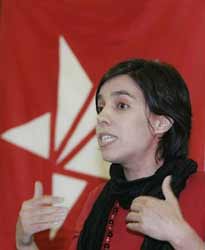 Escocia ya ha votado, ¿Catalunya lo va a hacer? El parlamento catalán ha aprobado este viernes la ley de consultas que así lo permite. Un 78,5% de la cámara le ha dado su apoyo. Y lo que es más importante: un millón 800 mil personas lo exigieron el pasado 11 de septiembre en una masiva movilización en la capital catalana.
Escocia ya ha votado, ¿Catalunya lo va a hacer? El parlamento catalán ha aprobado este viernes la ley de consultas que así lo permite. Un 78,5% de la cámara le ha dado su apoyo. Y lo que es más importante: un millón 800 mil personas lo exigieron el pasado 11 de septiembre en una masiva movilización en la capital catalana.
 On
On 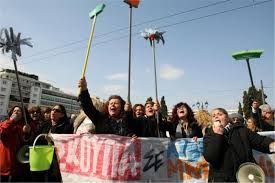 L'association Attac Maroc salue le courage des 595 femmes de ménage grecques de la Fonction publique, en lutte depuis 11 mois contre leur licenciement et les mesures d'austérité et de dégraissage de la Fonction publique imposées par le gouvernement grec sous tutelle des Institutions financières internationales et de l'Union européenne.
L'association Attac Maroc salue le courage des 595 femmes de ménage grecques de la Fonction publique, en lutte depuis 11 mois contre leur licenciement et les mesures d'austérité et de dégraissage de la Fonction publique imposées par le gouvernement grec sous tutelle des Institutions financières internationales et de l'Union européenne.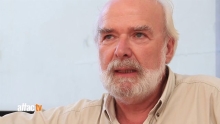 After the Second World War, in a growing number of Third World countries, policies diverged from those of the former colonial powers. This trend encountered firm opposition from the governments of the major industrialised capitalist countries whose influence held sway with the World Bank (WB) and the IMF. WB projects have a strong political content: to curtail the development of movements challenging the domination/rule of major capitalist powers. The prohibition against taking “political” and “non-economic” considerations into account in WB operations, one of the most important provisions of its charter, is systematically circumvented. The political bias of the Bretton Woods institutions is shown by their financial support to dictatorships ruling in Chile, Brazil, Nicaragua, Congo-Kinshasa and Romania.
After the Second World War, in a growing number of Third World countries, policies diverged from those of the former colonial powers. This trend encountered firm opposition from the governments of the major industrialised capitalist countries whose influence held sway with the World Bank (WB) and the IMF. WB projects have a strong political content: to curtail the development of movements challenging the domination/rule of major capitalist powers. The prohibition against taking “political” and “non-economic” considerations into account in WB operations, one of the most important provisions of its charter, is systematically circumvented. The political bias of the Bretton Woods institutions is shown by their financial support to dictatorships ruling in Chile, Brazil, Nicaragua, Congo-Kinshasa and Romania. There is no doubt. The moment of truth approaches. But which? The coming months will be worth years. For better or worse they can lead to an acceleration and a point of irreversible movement towards the breaking of the institutional framework created in 1978, or can represent the epic collapse of the process initiated in 2012, leaving behind a legacy of cynicism and frustration without comparison.
There is no doubt. The moment of truth approaches. But which? The coming months will be worth years. For better or worse they can lead to an acceleration and a point of irreversible movement towards the breaking of the institutional framework created in 1978, or can represent the epic collapse of the process initiated in 2012, leaving behind a legacy of cynicism and frustration without comparison. James Robertson: Let’s start with a brief history of the Initiative for Democratic Socialism (IDS) and its role in the formation of the Združena levica (UL, United Left) earlier this year. What are the origins of IDS?
James Robertson: Let’s start with a brief history of the Initiative for Democratic Socialism (IDS) and its role in the formation of the Združena levica (UL, United Left) earlier this year. What are the origins of IDS?  IN HIS AGE of Extremes, the great Marxist historian Eric Hobsbawm marked the start of World War I in August, 1914 as the beginning of the “short twentieth century.”
IN HIS AGE of Extremes, the great Marxist historian Eric Hobsbawm marked the start of World War I in August, 1914 as the beginning of the “short twentieth century.” The Second International and the First World War – Responding to capitalist global disaster: 1914 and today
The Second International and the First World War – Responding to capitalist global disaster: 1914 and today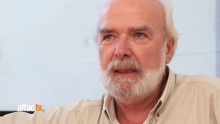 The United States cancelled the debts of some of its allies. The most obvious instance of this kind was the way the German debt was largely cancelled by the 1953 London Agreement. In order to make sure that the economy of West Germany would thrive and thus become a key element of stability in the Atlantic bloc, the creditor allies led by the United States made major concessions to German authorities and corporations - concessions that went beyond debt relief. A comparison between the way West Germany was treated after WWII and the current attitude to developing countries or to Greece today is a telling story.
The United States cancelled the debts of some of its allies. The most obvious instance of this kind was the way the German debt was largely cancelled by the 1953 London Agreement. In order to make sure that the economy of West Germany would thrive and thus become a key element of stability in the Atlantic bloc, the creditor allies led by the United States made major concessions to German authorities and corporations - concessions that went beyond debt relief. A comparison between the way West Germany was treated after WWII and the current attitude to developing countries or to Greece today is a telling story. As Jewish survivors and descendants of survivors of the Nazi genocide, we unequivocally condemn the massacre of Palestinians in Gaza and the ongoing occupation and colonization of historic Palestine. We further condemn the United States for providing Israel with the funding to carry out the attack, and Western states more generally for using their diplomatic muscle to protect Israel from condemnation. Genocide begins with the silence of the world
As Jewish survivors and descendants of survivors of the Nazi genocide, we unequivocally condemn the massacre of Palestinians in Gaza and the ongoing occupation and colonization of historic Palestine. We further condemn the United States for providing Israel with the funding to carry out the attack, and Western states more generally for using their diplomatic muscle to protect Israel from condemnation. Genocide begins with the silence of the world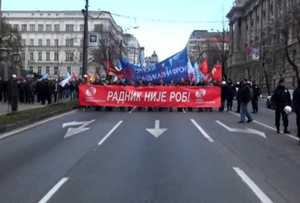 July 17th witnessed one of the largest social protests in Serbia since the beginning of the global financial crisis. Around 10000 people, mainly public sector workers, marched through the streets of Belgrade against the “economic reform legislative package” including the latest incarnation of the Labour law. This will, among other things, severely deregulate the labour market, making it even easier for “entrepreneurs” (as capital owners and managers are lovingly referred to by the government controlled media) to sack workers and cut wages and severance pay (thus legalising practices already commonplace in contemporary Serbia), which has, in one form or another, been on the agenda of all post-Milosević governments in Serbia.
July 17th witnessed one of the largest social protests in Serbia since the beginning of the global financial crisis. Around 10000 people, mainly public sector workers, marched through the streets of Belgrade against the “economic reform legislative package” including the latest incarnation of the Labour law. This will, among other things, severely deregulate the labour market, making it even easier for “entrepreneurs” (as capital owners and managers are lovingly referred to by the government controlled media) to sack workers and cut wages and severance pay (thus legalising practices already commonplace in contemporary Serbia), which has, in one form or another, been on the agenda of all post-Milosević governments in Serbia.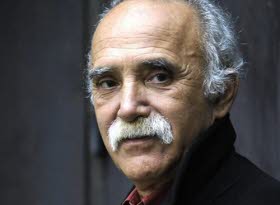 Michel Warschawski (né en 1949 à Strasbourg) est un journaliste et militant pacifiste d'extrême gauche israélien, cofondateur et président du Centre d'information alternative de Jérusalem et ancien président de la Ligue Communiste Révolutionnaire Marxiste israélienne.
Michel Warschawski (né en 1949 à Strasbourg) est un journaliste et militant pacifiste d'extrême gauche israélien, cofondateur et président du Centre d'information alternative de Jérusalem et ancien président de la Ligue Communiste Révolutionnaire Marxiste israélienne.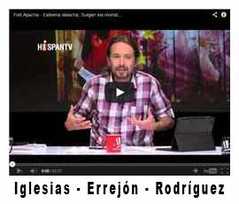 La aparición en la escena política de partidos ultraderechistas como Amanecer Dorado, la Liga Norte, el Frente Nacional Francés, PxC o España2000 en España, no hacen sino constatar, como ya resumió el dirigente británico del BNP, Nick Griffin, que las condiciones actuales representan la tormenta perfecta para su crecimiento.
La aparición en la escena política de partidos ultraderechistas como Amanecer Dorado, la Liga Norte, el Frente Nacional Francés, PxC o España2000 en España, no hacen sino constatar, como ya resumió el dirigente británico del BNP, Nick Griffin, que las condiciones actuales representan la tormenta perfecta para su crecimiento. China is not an “emerging country” but a power that has emerged. It is not a “sub-imperialism” ensuring order in its own region, but an imperialism “in formation.” The new Chinese bourgeoisie is aiming to play in the big league. The success of its enterprise is still far from assured, but this ambition determines its international policies, both economic and military.
China is not an “emerging country” but a power that has emerged. It is not a “sub-imperialism” ensuring order in its own region, but an imperialism “in formation.” The new Chinese bourgeoisie is aiming to play in the big league. The success of its enterprise is still far from assured, but this ambition determines its international policies, both economic and military. Dans une Interview exclusive de Jean-Luc Mélenchon au site payant Hexagones [
Dans une Interview exclusive de Jean-Luc Mélenchon au site payant Hexagones [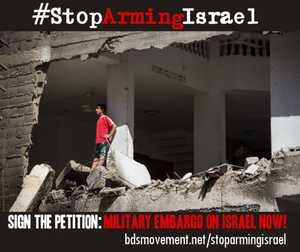 An abridged version of this letter calling for the UN and governments to impose a military embargo on Israel was published in the Guardian on July 19 2014 [1].
An abridged version of this letter calling for the UN and governments to impose a military embargo on Israel was published in the Guardian on July 19 2014 [1].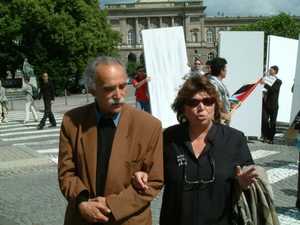 L’équipe d’Algérie de football vient d’annoncer qu’elle donnerait l’ensemble de sa prime aux Palestiniens de Gaza. Combative et au jeu attractif, elle n’a malheureusement pas réussi à vaincre les États-Unis et dépasser ainsi les huitièmes de finale, mais ce geste envers la population martyre de Gaza la met sur le podium du championnat de la solidarité internationale.
L’équipe d’Algérie de football vient d’annoncer qu’elle donnerait l’ensemble de sa prime aux Palestiniens de Gaza. Combative et au jeu attractif, elle n’a malheureusement pas réussi à vaincre les États-Unis et dépasser ainsi les huitièmes de finale, mais ce geste envers la population martyre de Gaza la met sur le podium du championnat de la solidarité internationale.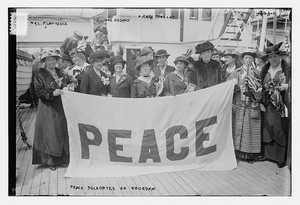 Women in Black of Madrid remember the Cassandras of the Great War:
Women in Black of Madrid remember the Cassandras of the Great War: